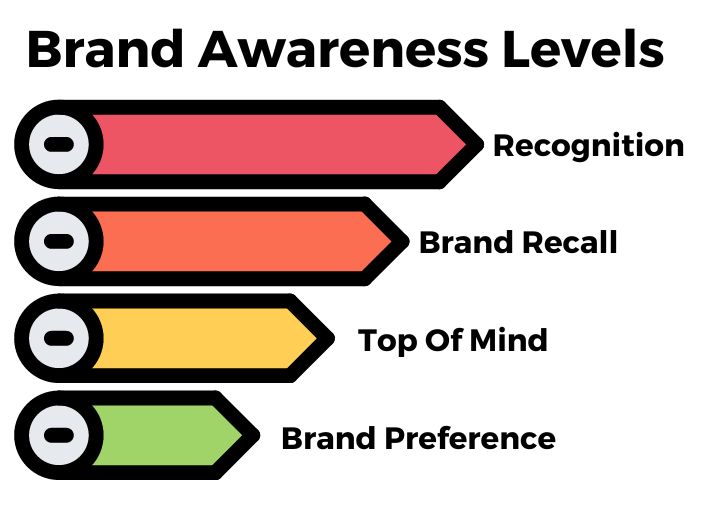Are you wondering if digital PR is content marketing?
The answer is both yes and no. Digital PR is a strategy that involves using online channels to build relationships that get your brand or product featured in media outlets. Content marketing is about creating and distributing value with the ultimate goal of driving profitable customer action.
That being said, digital PR and content marketing can work hand in hand.
A digital PR campaign can amplify your content marketing efforts by getting your content in front of a wider audience.
By building relationships with journalists and influencers, you can get your content featured on high-authority sites, which can help to boost your brand’s reputation, visibility, authority, and SEO efforts.
Defining Digital PR and Content Marketing
Digital PR and content marketing are two terms that are often used interchangeably.
While they share some similarities, they are not the same thing.
Here’s a brief overview of each:
Digital PR
Digital PR is a strategy that combines traditional PR tactics with online marketing techniques.
The goal is to create positive brand awareness and build relationships with your target journalist and media outlets.
Digital PR involves creating and distributing content to online publications and media outlets.
It can also include social media outreach, influencer marketing, and online reputation management.
Content Marketing
Content marketing is a strategy that consists of creating and sharing helpful, relevant, and consistent content to attract and retain your target audience.
The goal is to guide users through the customer journey, with the end goal of making a sale.
Content marketing can include blog posts, videos, podcasts, infographics, and other types of content.
The focus is on providing value to your audience rather than directly promoting your products or services.
By combining the two strategies, you can create a comprehensive digital marketing plan that builds brand awareness, establishes your authority in your industry, and drives traffic to your website.
Digital PR vs. Content Marketing
Understanding the difference is essential so you can decide which strategy is best for your business.
Digital PR focuses on getting your brand featured in media outlets. In contrast, content marketing focuses on creating and sharing valuable content to drive customer action.
Digital PR may have a higher ROI since it helps generate backlinks that boost SEO. On the other hand, content marketing typically has a longer-term payoff since it takes time for your content to gain traction and for customers to take action.
Ultimately, both strategies can be used in tandem to achieve maximum impact.
Key Differences
Digital PR is focused on managing the public’s perception of your brand and generating brand awareness, crisis control, and reputation management.
Content marketing is focused on creating and distributing valuable content that drives people to make a buying decision, such as purchasing or signing up for a newsletter.
Targeting
Another difference is the target audience.
Digital PR is aimed at a broader audience, including journalists, influencers, and the general public.
It’s more about reaching as many people as possible.
Content marketing is aimed at a specific audience, such as potential customers or clients.
Outreach and Media Relations
Digital PR often involves press releases, media relations, and social media outreach to generate results.
Conversely, content marketing involves creating blog posts, videos, infographics, and other types of content designed to engage and inform your target audience and can happen organically.
Measuring Results
Finally, the metrics used to measure success are different.
Digital PR success is often measured by the number of media mentions, social media shares, and website traffic generated.
Content marketing success is often measured by the number of leads generated, conversions, and engagement metrics.
Overall, both digital PR and content marketing can be practical tools for promoting your brand.
The key is understanding the differences between the two and choosing the approach that best fits your goals, target audience, and budget.
Is Digital PR Content Marketing?
The answers to this vary depending on whom you ask.
Let’s explore the two strategies so you can decide for yourself.
Arguments in Favor
Digital PR and content marketing share many similarities, such as using writing and communication to convey a message to a specific audience.
Both strategies aim to build brand awareness, establish credibility, and engage with customers.
However, digital PR takes a more proactive approach by using outreach to build online strategies like search engine optimization (SEO), social media, and influencer marketing.
By leveraging these digital channels, digital PR can help brands reach a wider audience and generate more measurable leads than traditional PR.
Digital PR can also be an effective way to distribute content.
By building relationships with journalists, bloggers, and other influencers, digital PR professionals can secure media coverage and backlinks to boost a brand’s online visibility more easily over time.
Whereas content marketing is a never-ending cycle of creating and distributing content, digital PR can provide a more focused approach to content distribution.
Arguments Against
Content marketing focuses on creating and distributing valuable, relevant, consistent content to attract and retain a targeted audience.
It can target every level of brand awareness and the buyer’s journey.

Digital PR, on the other hand, focuses on using online strategies to build the brand’s authority and is a top-of-the-funnel strategy.
Ultimately, whether or not digital PR is considered content marketing depends on how you define the two terms.
While there are similarities between the two, they are distinct strategies requiring different approaches and goals.
However, by combining the two strategies, brands can create a more comprehensive and effective marketing plan that leverages the strengths of both approaches.
The Future of Digital PR & Content Marketing
Content marketing is becoming increasingly important in today’s business landscape as companies look to stand out in an ever-crowded market.
With more competition than ever, content marketing is a powerful tool that can be used to differentiate a brand and build trust with customers.
Thanks to AI, content marketing will become more personal.
Imagine going to a web page that serves up content tailored especially for you and your current interests.
And if you go to that page one year later, you get a different experience in line with your interests of today.
AI will also allow companies to use data more effectively in their content marketing efforts, such as analyzing customers and trends to develop targeted campaigns.
As for digital PR, the future looks bright.
Digital PR will be the defining factor separating the two websites’ authority and trust.
Now that AI will allow for creating all types of content at scale, the authority of a website use strategies that can not be mass produced since these authoritative media outlets are very selective about what they publish.
Digital PR will be an even more critical aspect of SEO in the future.
It would be best if you started building those relationships now.
Conclusion
Digital PR and content marketing shouldn’t be looked at in the sense of this or that.
By combining these two strategies, you can create a powerful marketing mix that leverages the strengths of both approaches.
For example, you can use content marketing to create high-quality blog posts, infographics, videos, and social media updates that showcase your expertise, solve customer problems, and promote your brand.
Then, you can use digital PR to reach out to journalists, bloggers, and influencers and pitch your content as a valuable resource for their audience.
The key to success in digital PR and content marketing is to focus on providing value to your target audience.
Creating content that informs, educates, entertains, or inspires readers can build trust, loyalty, and engagement over time.
And by leveraging the power of digital PR to amplify your content, reach new audiences, and grow your business in the digital age.





